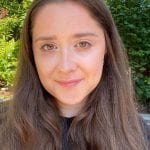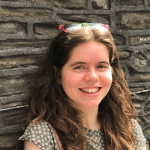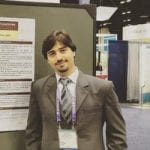2019-20 Cohort
Our first cohort of 14 students started their PhD studies in September 2019. Find out more about their interests and research projects below.
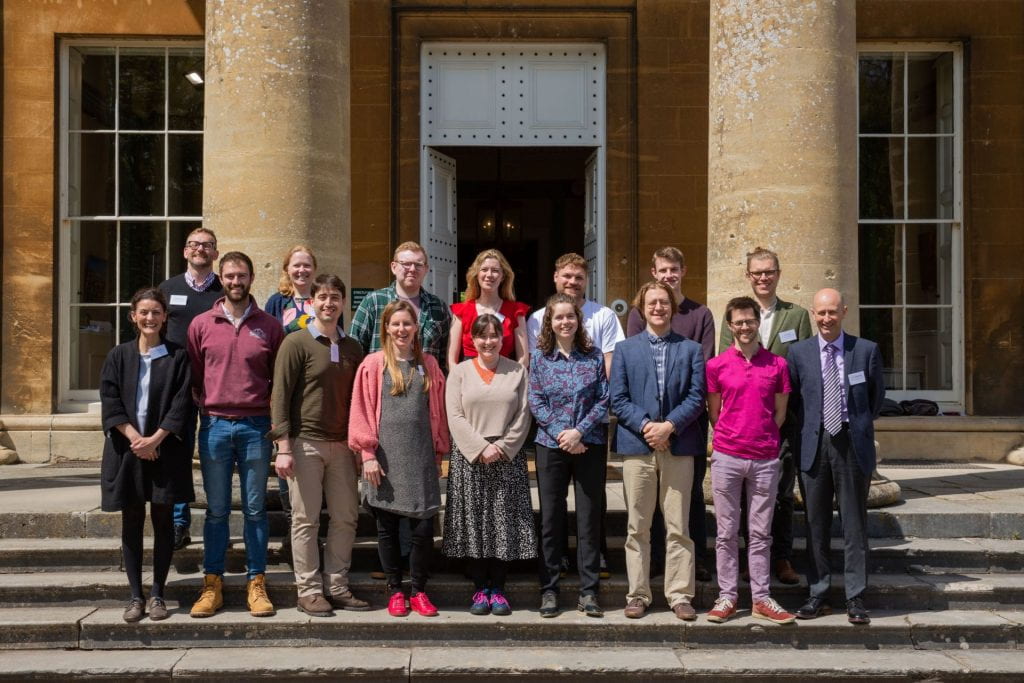
Pete Knapp - Imperial College London
Project: Filtration of Charged Aerosols
Supervisors: Marc Stettler, Prof. Jonathan Reid
Pete graduated in Maths from Southampton in 2008 and then tried to make a success in a band for the next four years. Success was elusive, so he trained to become a Maths teacher and took a job in Beijing for 3 years, where he learnt about the horrors and realities of air pollution. To escape this, he moved to teach in a school in the Swiss Alps also with a view to work at CERN, which he did the following year where he obtained an MRes in Antimatter Physics. After one more year teaching abroad, in Shenzhen this time, he came back to the UK to look for a PhD in air quality. Imperial College had a stand during a science fair and they showed him a device that could detect levels of air pollution. The student gave him the name of his supervisor, who in turn gave him details to apply to the Aerosol Science CDT.
Pete started a PhD in Indoor Air Quality, where he will be investigating how electrically charged indoor pollutants are with a view to incorporating charge into more effective filters to improve indoor air quality.
Check out Pete’s article, interview and podcast!

Ted Robson - University of Bath
Project: Aerosol-assisted Chemical Vapour deposition (AACVD) of inorganic and hybrid materials
Supervisors: Dr Andrew Johnson, Dr Adam Boies
Having completed a Master’s degree in Chemistry at the University of Bath, Ted is conducting doctoral research in materials chemistry for aerosol technologies. Under the supervision of Dr Andrew Johnson, he is using aerosol-assisted chemical vapour deposition to fabricate thin film, inorganic semiconductor materials, with emphasis on precursor design and synthesis. Given the increasing demand for smaller electronic devices and technologies, Ted aims to provide cheap and scalable means to manufacture intricate semiconductor architectures – such as transistors and photovoltaic cells.
Madeleine Reader - University of Bristol
Project: Damage to jet engines by airborne particulates; Detection and mitigation
Supervisors: Dr Matthew Watson, Dr Paul Williams
Before starting the programme Maddie completed a Master’s degree in Volcanology from the University of Bristol and a Geology degree from the University of Edinburgh.
Her PhD project will focus on looking at how volcanic ash affects jet engines; focusing on particle size, distribution and composition. As volcanic eruptions have the potential to close large amounts of airspace, as seen during the 2010 Eyjafjallajökull crisis, this research aims to better understand the limits surrounding ash ingestion into engines.
Jamie Knight - University of Bristol
Supervisors: Prof. Andrew Orr-Ewing, Dr Adam Squires
Jamie is working at the University of Bristol with Professor Andrew Orr-Ewing using cavity ring-down spectroscopy techniques to determine both real and imaginary refractive index components of absorbing aerosol species. In his spare time he enjoys watching the Bristol Bears rugby team and socialising with friends.
George Adams - University of Manchester
Project: Determining the effects of airborne particulates on immune and barrier epithelial cell function
Supervisors: Prof. Sheena Cruikshank, Dr David Topping
George undertook his undergraduate degree in biological sciences at the University of central Lancashire from 2015-2018 and gained a master’s degree in Infection biology from the University of Manchester from 2018-2019. During the master’s degree, George performed an 8 month research project focusing on Macrophage activation during Helminth infections. It was during this project that he developed a keen interest in immunology and a passion for research and lab work.
His PhD project will be conducted at the University of Manchester, under the supervision of Professor Sheena Cruickshank. His work will be focused on examining biological particulate matter, that makes up the ambient microbiome in the atmosphere and the effects that these pollutants have on the immune response. In particular whether a damage response can be triggered, leading to the activation of the inflammasome within macrophage and epithelial cells.
Toria Legh-Land - University of Hertfordshire
Supervisors: Prof Darragh Murnane, Prof Jonathan Reid
After graduating with a degree in Chemistry from the University of Bristol, Toria moved to the University of Hertfordshire to undertake her PhD which focuses on drug delivery to the lungs. In particular, her doctoral research considers the chemical and physical particle properties that affect efficiency of aerosol deposition and drug delivery.
Having really enjoyed getting to know the first cohort and learning more about aerosol science during the initial year in Bristol, she is now looking forward to honing her skills and knowledge over the rest of the PhD.

Lauren McCarthy - University of Bristol
Project: The Coalescence of Drying Droplets
Supervisors: Prof Jonathan Reid, Dr Rachael Miles
Lauren studied chemistry at the University of Bristol (2012-2016) before moving to British Columbia, Canada to enjoy the outdoor lifestyle of the mountains for 3 years. Having somewhat mastered the art of skiing, Lauren decided to return to science, and enrolled in the CDT.
Lauren is an aligned student and her project will focus on the coalescence and surface deposition of drying droplets using stroboscopic and high frame rate imaging to observe collisions. Collisions between droplets can affect the size distribution of a dispersion which can have implications in all areas of aerosol science.
Kathleen Thompson - University of Leeds
Project: Size, sources and transport of the seeds of ice in clouds
Supervisors: Prof. Ben Murray, Prof. Catherine Noakes
During Kathleen’s degree in Environmental Science at the University of Leeds, she developed an interest in atmospheric science and the Earth system, in particular, how aerosols impact clouds and climate.
Her PhD research focuses on the aerosols that nucleate ice in clouds, which affect cloud reflectivity and lifetimes. Her research will aim to improve our understanding of the size of these particles in the atmosphere. Therefore, it will increase the knowledge of the sources and transportation of these aerosols in the Earth system.
Khaled Alzahabi - Imperial College London
Project: Inhalable nanomedicines for treatment of tuberculosis
Supervisors: Prof. Terry Tetley, Prof. Alexandra Porter
Khaled Hassan Alzahabi is a PhD candidate in the department of National Heart and Lung Institute at Imperial College London. His doctoral research develops a new therapy to treat tuberculosis using a combination of antitubercular substances which will be tested using a novel lung cell model. He holds BSc and MSc in Pharmacy with a successful record of performing pharmaceutical projects in the field of drug delivery.
Tom Hilditch - University of Bristol
Supervisors: Prof. Jonathan Reid, Dr. David Topping
Tom undertook his Undergraduate studies at the University of Bristol from 2015-2019, where he studied Chemistry (MChem). In the summer of his third year he was granted 8 weeks of funding by AkzoNobel to investigate the evaporation dynamics of industrial paint spray droplets, where he worked in the Bristol Aerosol Research Centre (BARC) with Dr Rachael Miles. He then went on to work in the same group for his final year project supervised by Prof Jonathan Reid, where he investigated condensation reactions upon drying in aqueous organic droplets.
Having enjoyed his time so far studying aerosols in BARC, he decided to carry on through the EPSRC Aerosol Science CDT, where his research will focus on improving the understanding of the gas/particle partitioning behaviour of organic aerosols.

Joshua Harrison - University of Bristol
Project: Dynamic surface properties of atmopsheric aerosol and resulting climate impacts
Supervisors: Dr Bryan Bzdek, Dr Matthew Watson
Joshua completed his MChem (Chemistry with a Year Abroad) at Cardiff University, gaining an interest in aerosols during a research placement as part of his Year Abroad in Australia.
Joshua’s PhD research will focus on understanding how atmospheric aerosols affect climate by direct scattering/absorption of solar radiation and indirectly, via the ability to serve as Cloud Condensation Nuclei (CCN), to form clouds. In particular, Joshua will be examining the surface properties of atmospheric aerosol, as the surface plays a critical role in the fraction of atmospheric aerosol that may form cloud droplets.
Michael Glerum - University of Cambridge
Project: Development of a packed bed reactor for carbon nanotube synthesis
Supervisors: Dr. Adam Boies, Dr. Adam Squires

Maxamillian Moss – University of Manchester
Supervisors: Dr. David Topping, Dr. Chris Stopford
Max always considered those who knew their career path from an early age incredibly lucky and until recently this was something he never had. Having graduated in geography from Swansea University in 2017, he meandered into teaching and enrolled on a PGCE at the University of Oxford where he graduated in 2018. His time at Oxford was invaluable and more than anything it showed him what he was capable of achieving, instilling in him a new confidence and drive to continue pursuing his own education, before teaching others. With the desire to shift from geography into the sciences, he enrolled and graduated with an M.Res in Environmental and Biological Nanoscience from the University of Birmingham in 2019.
During this time, he was approached by Dr. David Topping of the University of Manchester with an exciting PhD opportunity which he just couldn’t refuse. Being an amalgamation of all his past training as well as incorporating his love of technology and computing, he shall be exploring the use of machine learning in developing robust detection algorithms for bioaerosols.
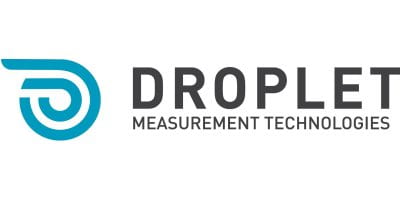

EPSRC CDT in Aerosol Science
University of Bristol
School of Chemistry
Cantock's Close
Bristol, BS8 1TS
aerosol-science@bristol.ac.uk
Partner Newsletter
Sign up to receive monthly news and updates from the CDT in Aerosol Science, as well as events, training and research webinars.







